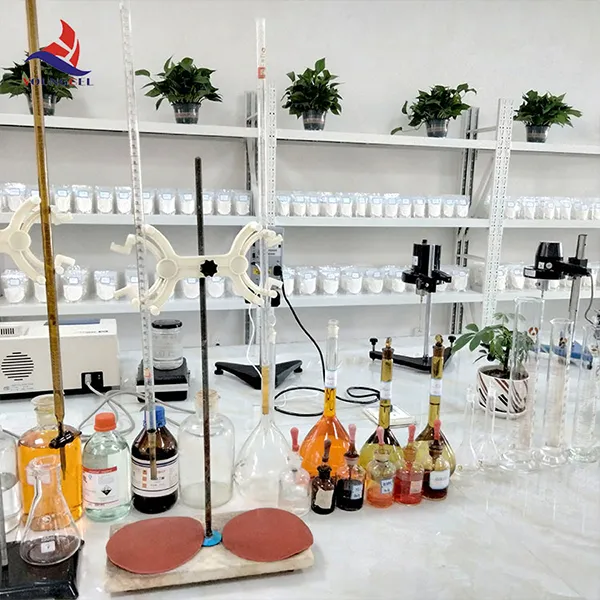Understanding Methyl Cellulose Properties, Uses, and Applications
Methyl cellulose is a cellulose derivative that has gained prominence across various industries due to its unique properties and versatility. As a hydrophilic, non-ionic polymer, it is formed by the methylation of cellulose, which is a natural polymer obtained from plant cell walls. The resulting product has a wide array of applications ranging from food and pharmaceuticals to construction and personal care products.
Chemical Structure and Properties
Methyl cellulose is synthesized through the reaction of cellulose with methyl chloride or methyl sulfate in an alkaline medium. This process replaces some of the hydroxyl groups in the cellulose molecule with methyl groups. The degree of substitution, which refers to the number of hydroxyl groups replaced, affects its solubility and other functional characteristics. Methyl cellulose is soluble in cold water, forming a viscous gel upon dissolution. This property is crucial for its applications, as the gel can be manipulated for various purposes.
The viscosity of methyl cellulose solutions can be influenced by factors such as concentration and temperature. Interestingly, it exhibits a phenomenon known as thermogelation, where the viscosity decreases with an increase in temperature, resulting in a transition from a gel to a sol. This characteristic makes methyl cellulose an attractive choice in applications requiring temperature sensitivity.
Applications in the Food Industry
In the food sector, methyl cellulose is widely used as a food additive, often designated as E461 in Europe. It functions as a thickening agent, emulsifier, and stabilizer in various products. Notably, it is commonly found in gluten-free baking, where it helps to improve the texture and moisture retention of baked goods. Because it mimics the properties of gluten, methyl cellulose offers an alternative for those with gluten intolerance.
Moreover, its ability to encapsulate flavors and nutrients makes it valuable in the production of sauces, dressings, and processed foods. Methyl cellulose also plays a crucial role in the production of vegetarian and vegan meat substitutes, providing a chewy texture that simulates that of traditional meat products.
methyl cellulos

Pharmaceutical and Health Applications
In pharmaceuticals, methyl cellulose is utilized as a binder and controlled-release agent in tablet formulations
. Its hydrophilic nature allows it to absorb water, facilitating the dissolution of drugs in the gastrointestinal tract. Additionally, it is employed in ophthalmic solutions and as a thickening agent in various formulations, aiding in the production of a variety of medications.Methyl cellulose also shows promise in the realm of health and nutrition supplements, where it can aid in weight loss by providing a feeling of fullness. When consumed, it expands in the stomach, leading to increased satiety, thus supporting weight management efforts.
Construction and Cosmetic Uses
Beyond the food and pharmaceutical industries, methyl cellulose is an essential component in construction materials, particularly in mortars and adhesives. Its water-retention properties ensure that materials remain workable for longer periods, which is essential for improving the quality and durability of construction applications.
In cosmetics and personal care products, methyl cellulose serves as a thickening and emulsifying agent in lotions, creams, and gels. Its ability to create stable products and enhance texture is highly sought after in the beauty industry.
Conclusion
Methyl cellulose is a remarkable polymer with diverse applications across multiple sectors. Its unique properties, including solubility in cold water, thickening capabilities, and thermogelation feature, make it a valuable component in food, pharmaceuticals, construction, and personal care products. As innovations continue to emerge, the potential applications of methyl cellulose are likely to expand, highlighting its significance in modern science and industry.
-
Premium Detergent Grade HPMC Hydroxypropyl Methylcellulose: Superior Thickening & StabilityNewsAug.31,2025
-
HEC 100000 Hydroxyethylcellulose for Paint | Superior ThickeningNewsAug.30,2025
-
Wall Putty Rdp Powder Packaging DesignNewsAug.29,2025
-
Introduction to Hpmc Hydroxypropyl Methyl CellulosNewsAug.29,2025
-
Hpmc Industri Grade IntegrationNewsAug.29,2025
-
How to Choose the Right Construction AdhesiveNewsAug.29,2025




